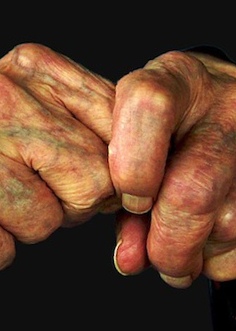New link in aging chain shows illness ingress
 Researchers have shined a light on one of the mechanisms that links depression and aging to an increased risk of disease.
Researchers have shined a light on one of the mechanisms that links depression and aging to an increased risk of disease.
An international team from labs in Germany and the US have found that both ageing and depression are associated with changes in the FKBP5 gene.
In a second finding, they discovered that increased FKBP5 expression is associated with increases in inflammation and cardiovascular risk.
Psychological stress and stress-related psychiatric disorders are associated with increased risk for aging-related diseases, but the molecular mechanisms behind this relationship have been hard to pin down.
Understanding these mechanisms may contribute to the development of targeted preventive strategies and new or improved treatments for these devastating diseases.
“We found that both aging and depression seem to lead to changes in how DNA is processed, and that this can control the expression of genes that regulate how we respond to stress,” said lead researcher Dr Anthony Zannas, from the Max Planck Institute of Psychiatry in Munich.
“These changes are associated with increased inflammation, and we believe that this may lead to the increased risk for several aging-related diseases, such as cardiovascular diseases and neuropsychiatric disorders, that has been observed in chronically stressed and depressed individuals.
“Our work shows that risk for aging-related diseases could be conferred by epigenetic changes of stress-related genes and resultant increases in the expression of inflammation markers. It's too early to say that we are seeing a cause and effect, so we need to confirm the findings by using larger samples and uncover the mechanisms using animal models.
“If we can do that, we may have the opportunity to develop tests for age-related diseases and new ways to prevent the harmful effects of stress.”
The FKBP5 gene is found on chromosome 6 in humans. It codes the FK506 binding protein 5, also known as FKBP5. This protein is known to play a role in stress responses, immune regulation and basic cellular processes involving protein folding.







 Print
Print